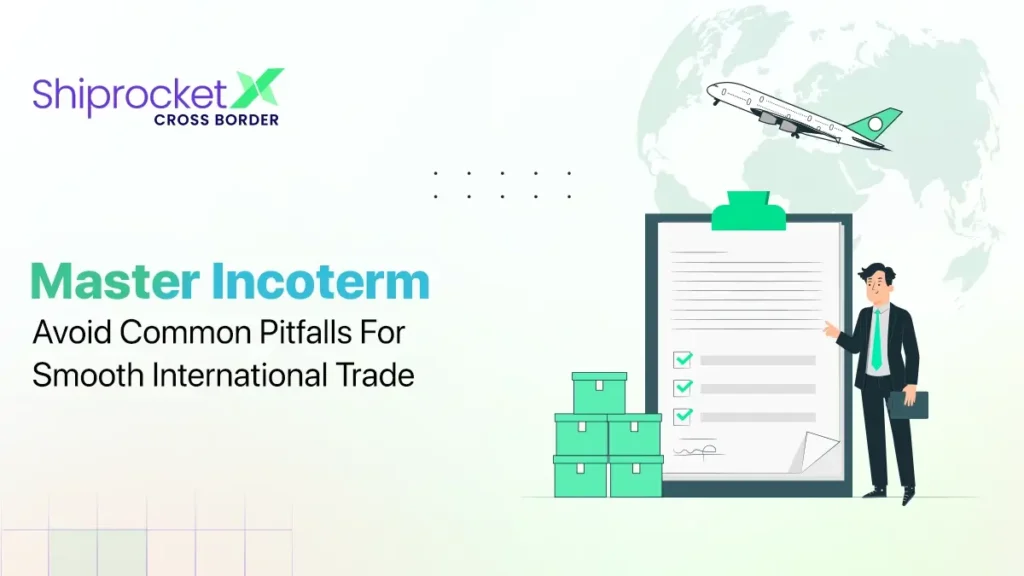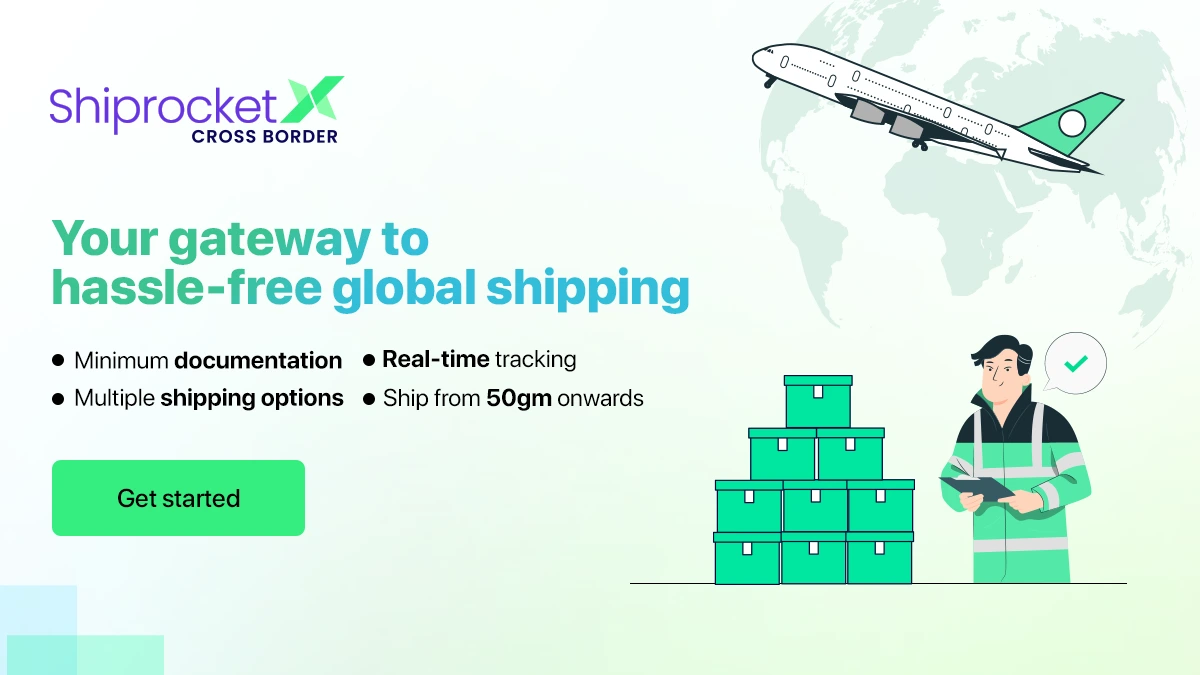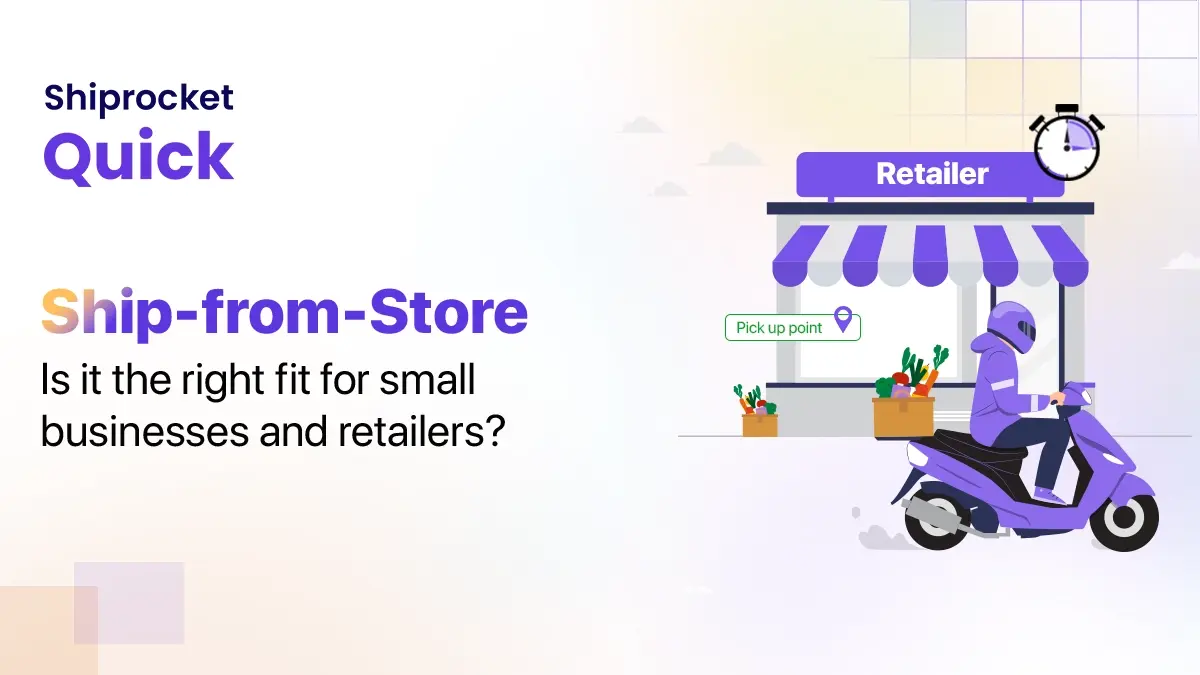Common Incoterm Mistakes to Avoid in International Trade
International trade involves complex import and export processes. Businesses from different worlds engage in the exchange of goods. To ensure smooth shipping, the International Chamber of Commerce (ICC) has developed a set of standard trade terms known as ‘Incoterm’ (international commercial terms), which can be used commonly throughout the shipping industry. These terms define the roles and responsibilities of sellers and buyers during the different stages of shipment and other logistical activities. Any Incoterm mistakes made by inexperienced shippers can lead to damages to the business’s reputation, losses, and disputes.
This blog aims to highlight some of the most common Incoterm mistakes and provide guidance on how to avoid them.

Avoiding Common Incoterm Mistakes
Incoterms define the responsibilities of buyers and sellers in international trade. It delineates the parties accountable for handling and covering the cost of the shipping, insurance, paperwork, customs clearance, and further logistical tasks. Misunderstanding such terms can lead to major financial losses and clashes. Here are some common Incoterm mistakes you can avoid:
- Wrong Incoterm Selection: Choosing the right Incoterm is important as it determines the responsibilities, costs, and risks that a buyer and seller face. A wrong one can lead to confusion, higher costs, and possible disputes. To avoid such conflicts, you must understand each Incoterm, reach out to experts for guidance, and stay up-to-date with market changes.
- Naming Destinations: It is a common mistake not to clearly mention the point of delivery, which leads to misunderstandings and additional costs. To avoid such conditions, you must be precise with the location, verify it with the parties, and include a detailed address.
- Terminal Handling Charges: Terminal handling charges are important in international shipping, but it is not usually clearly mentioned which party will bear these charges. To avoid such conditions, parties should communicate clearly about their responsibilities and division.
- Clarifying Customs Responsibilities: One or both parties’ customs responsibilities are not always clear, leading to delays, fines, and additional costs. The responsibilities should be clarified beforehand by specifying each party’s duties, making proper documents for customs, and using appropriate Incoterm.
- Ensuring Payment Alignment with Incoterm: If the payment terms do not align with the Incoterm, it might cause cash flow issues, confusion, and financial strain. To avoid such conditions, one must clearly mention payment terms and use secure payment methods to provide financial security to both parties.
List of Incoterm 2020 & Definitions
Incoterm (International Commercial Terms) are set standardised terms that are published by the International Chamber of Commerce (ICC) and define the responsibilities of buyers and sellers in international markets. The Incoterm 2020 includes 11 rules. Here’s what each means:
- EXW (Ex Works): In this, the seller is not responsible for loading goods on collecting vehicles or clearing the goods for export. The buyer arranges all the transportation, including export and import clearances.
- FCA (Free Carrier): In this case, the seller is responsible for export clearances, and the risk is transferred from the seller to the buyer once the goods are delivered to the carrier.
- CPT (Carriage Paid To): The risk in this is transferred from the seller to the buyer once the goods are handed over to the carrier. In this case, the seller is responsible for export clearance and pays for transportation to the destination.
- CIP (Carriage and Insurance Paid To): The seller pays for the carriage and insurance of the package to its destination. However, the risk is transferred from the seller to the buyer when the shipment is handed to the carrier.
- DAP (Delivered at Place): The seller bears all the risks and costs up to the destination, and the buyer is responsible for the import clearance and any applicable import taxes and duties.
- DPU (Delivered at Place Unloaded): In this, the seller bears all the risks and costs up to the destination, including the unloading of the shipment. The buyer is responsible for the import clearance and any other import duties and taxes.
- DDP (Delivered Duty Paid): In this case, the sellers bear all the risks and costs, including import duties and taxes. The buyer is responsible for unloading the shipment. DDP places the maximum responsibility on the seller and less on the buyer.
- FAS (Free Alongside Ship): The seller is responsible for export clearance, and the risk is transferred from the seller to the buyer once the goods are on the ship.
- FOB (Free on Board): The seller is responsible for export clearances and delivering the goods. Once the goods are boarded on the vessel, the risk is transferred to the buyer.
- CFR (cost and freight): The seller is responsible for export clearance and transport to the destination, and the risk is transferred to the buyer once the goods are boarded in the vessel. The buyer is responsible for the insurance of the goods.
- CIF (Cost, Insurance, and Freight): The seller is responsible for the shipment’s export clearance, transportation to the destination port, and insurance. The risk is transferred to the buyer when the goods are on board the vessel.
CIF and FOB: Understanding the Distinctions
In international trade, terms like CIF (cost, insurance, and freight) and FOB (free on board) are among the most commonly used Incoterm. These are important to define the responsibilities of buyers and sellers in terms of costs, risks, and obligations during the transportation of goods. Some of the key distinctions between CIF and FOB are mentioned below:
| Aspect | CIF (Cost, Insurance, and Freight) | FOB (Free on Board) |
|---|---|---|
| Responsibilities of cost | Sellers pay for the transportation and insurance up to the destination port. Whereas the buyer pays for the unloading and further transportation part. | Seller pays up to the delivery on board the vessel. Whereas the buyer pays from the point onwards. |
| Risk transfers | The risk is transferred from the seller to the buyer once the goods are on board the vessel at the port of origin. Here, the seller covers the insurance and freight of the shipment to the destination port. | The risk is transferred from the seller to the buyer once the goods are on board the vessel at the port of origin. |
| Insurance of the shipment | The seller pays for the insurance during the main transportation. | The buyer manages and pays for the insurance. |
| Clearance of exports | The seller is responsible for arranging and paying for the licenses of export, custom duties, and its documentation. | Seller is responsible here for arranging and paying for the licenses of export, custom duties, and its documentation. |
| Clearance of imports | The buyer is responsible for managing and paying the import taxes, duties, and documentation. | The buyer is responsible for arranging and paying for import duties, taxes, and documentation. |
| Transportation control | The seller is in control of the transportation and insurance arrangements. | The buyer is in control of the transportation and insurance arrangements. |
| Cost of the freight | The seller pays for the main transportation to the destination port. | The buyer pays for the transportation from the port to the final destination. |
| Unloading and delivery of the shipment | The buyer is responsible for arranging and paying for the unloading and any transportation needed to deliver the shipment. | The buyer is responsible for arranging and paying for the unloading and transportation needed to deliver the shipment. |
| Advantages | The sellers have control over the shipping process, management of export procedures, and costs. The buyers have control over logistics, costs for freight, and insurance of the shipment. | The sellers have fewer responsibilities after the shipment is on board the vessel. Whereas the buyers have great control over the shipping process, insurance and shipping rates. |
| Disadvantages | Sellers have higher responsibilities and have to pay for freight and insurance, while buyers have limited control over the shipping arrangements. | Sellers have limited control over shipments after the goods are on board the vessel. In contrast, buyers have high responsibilities, more complex logistics management and have to pay for freight and insurance. |
Advantages and Disadvantages of CIF
CIF is one of the common Incoterm used in international trade. It has different benefits and challenges that impact the experiences of buyers and sellers. Here are some of the advantages and disadvantages of CIF:
Advantages of CIF:
- Simple cost management: CIF simplifies the buyer’s logistics by moving the responsibilities of major costs like shipping and insurance to the seller. This is advantageous for buyers to have a hassle-free purchasing experience, and the seller handles the logistics and complexities of international shipping.
- Risk management: In CIF, the seller insures the goods until they reach the destination port, which ensures the buyer is protected against any loss or damage.
- Logistical convenience: Buyers benefit from the seller’s expertise and resources in the shipping process, which leads to smoother and more reliable transport of goods. The seller’s experience handling the shipments is an advantage for the buyers.
Disadvantages of CIF:
- High cost: CIF has simple logistics, but it results in high overall costs for the buyer. The seller controls the shipping and insurance section, which can be an expensive option compared to the other Incoterm, where the buyer arranges and negotiates for the insurance and shipping themselves.
- Limited control: The buyers have limited control over the shipping process, like choosing the route, carrier, and schedule. If the buyer has strict delivery times and carrier requirements, this lack of control is disadvantageous.
- Risk of transferring: The risk of loss or damage transfers to the buyer as soon as the goods are loaded on the ship. But the seller here arranges for the insurance of the goods and transfers it to the buyer to use.
- Insurance coverage: The seller is responsible for the insurance, but it does not always meet the buyer’s requirements and can cause disputes.
Advantages and Disadvantages of FOB
FOB (Free on Board) is another commonly used Incoterm in international trade that comes with its own advantages and disadvantages. Some of them are as follows:
Advantages of FOB:
- Great control over shipping: FOB allows buyers to have more control over the shipping process as per their preferences and requirements for routes, carriers, companies, etc.
- Transparency in cost: The buyer pays the cost for the carriages and insurance, which provides clear visibility for the shipping costs. The transparency here helps the buyers manage their budgets efficiently and avoid any extra charges.
- Managing risk: When the goods are loaded into the vessels, risk is transferred from the seller to the buyer. This means the buyers can ensure that appropriate insurance is in place.
- Flexibility: FOB provides flexibility to the buyers to handle logistics by choosing their own carriers, schedules, and supply chain operations. This increases the cost-effectiveness and efficiency of the shipping process.
Disadvantages of FOB:
- Increased responsibility for buyers: FOB gives buyers more control, which means more responsibility. The buyer manages the logistics of the shipment by arranging transportation and dealing with issues during transit.
- Complex documentation: Buyers handle multiple shipping documents, which can be complex, time-consuming, and lead to delays if not handled properly.
- Miscommunication: FOB needs clear communication and coordination between the buyer and the seller, as miscommunication can lead to disputes and complications for both parties.
- High overall costs: FOB has cost transparency but doesn’t guarantee low overall prices every time. Buyers may experience high costs due to a lack of negotiation power with shipping companies.
Conclusion
The correct use of Incoterm is very important to facilitate smooth and efficient international trade. There are some common mistakes that sellers can avoid by understanding the meaning, context, and use of these terms for clear communication and planning. They can lower the risk of disputes and losses by educating their teams, using detailed contacts, consulting with experts, regularly reviewing the practices, and using technology to increase the efficiency and reliability of international trade operations. One must remember that the key to succeeding in international trade is not just knowing the correct meaning of Incoterm but also applying and using these correctly and consistently.








